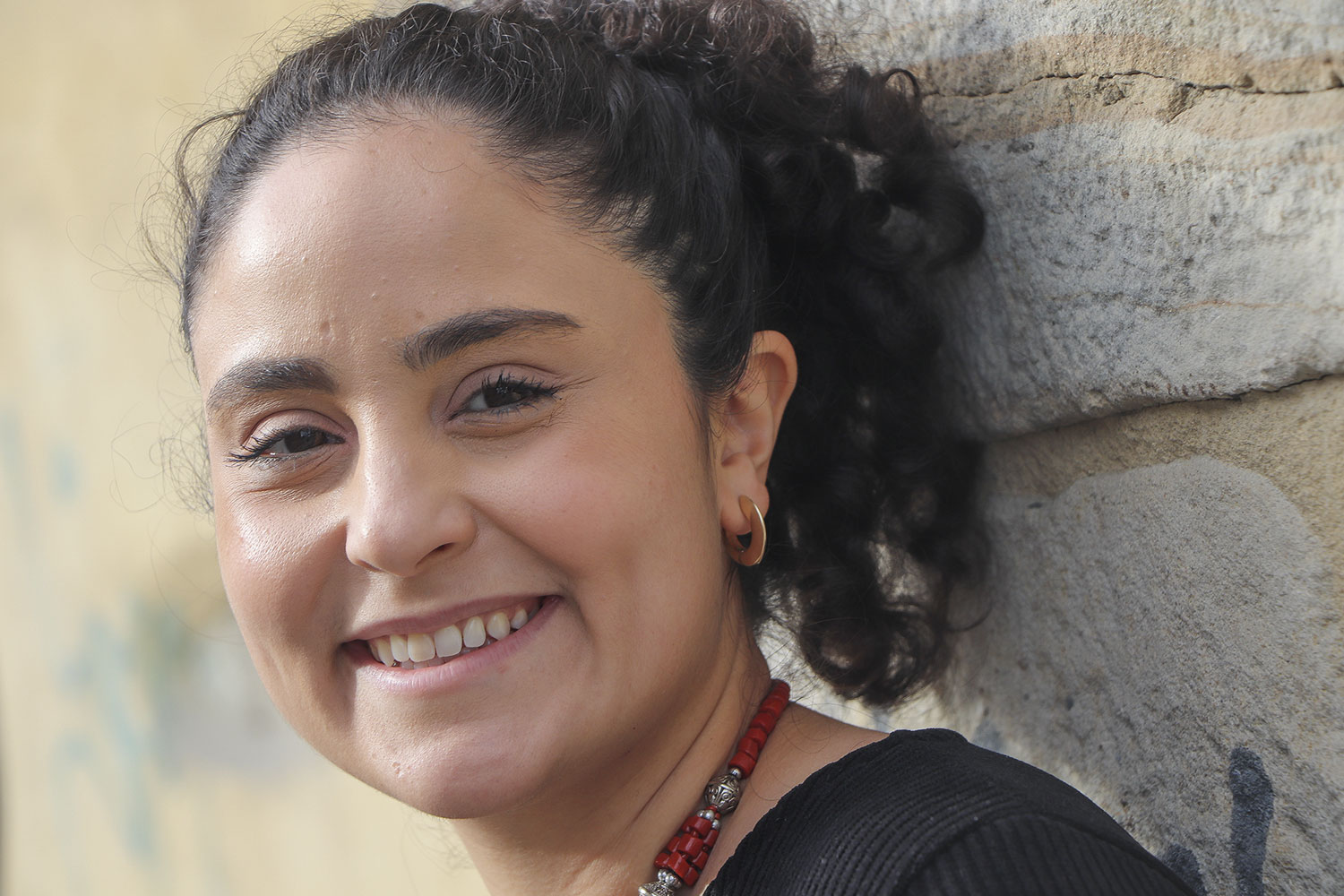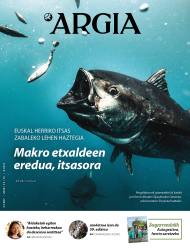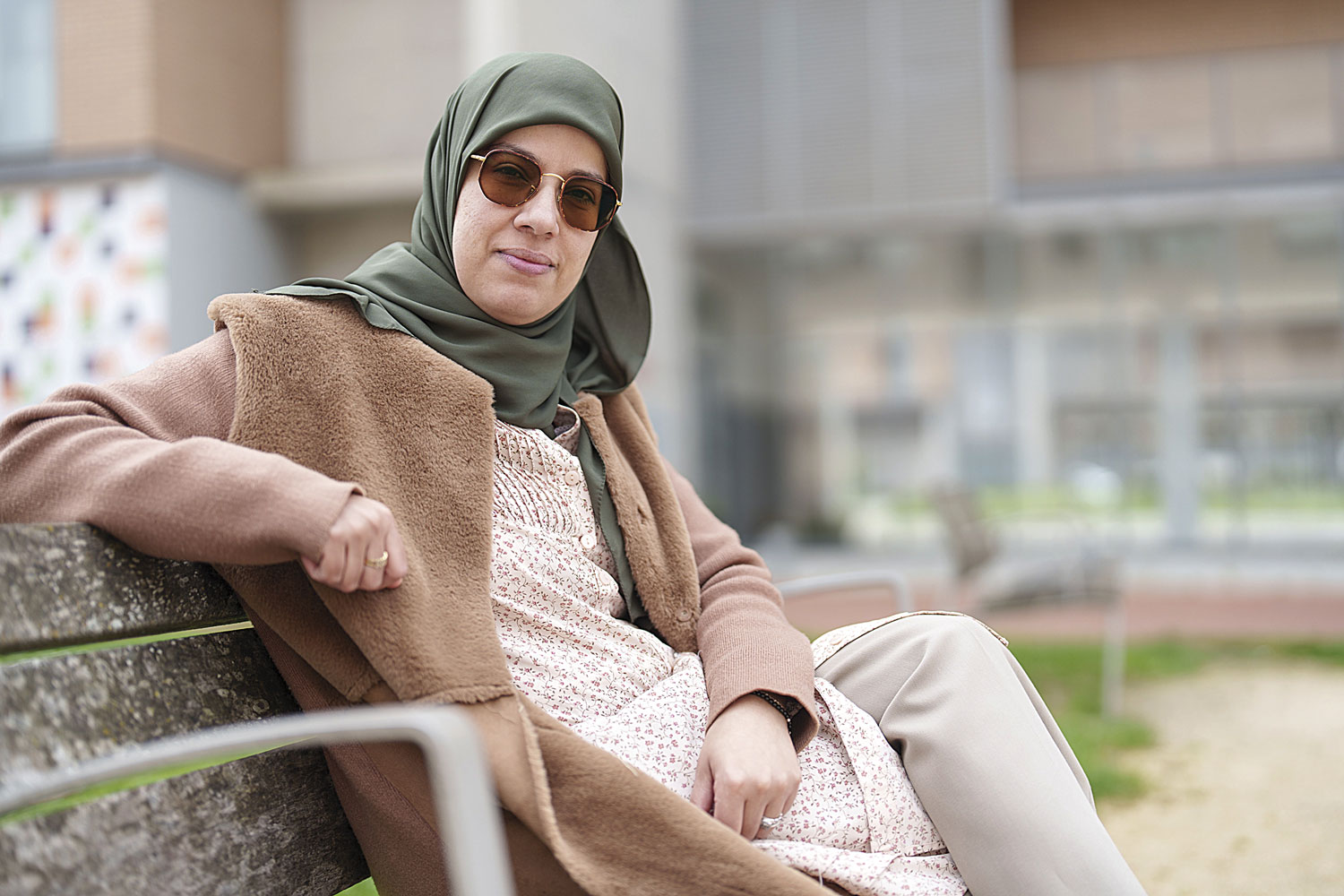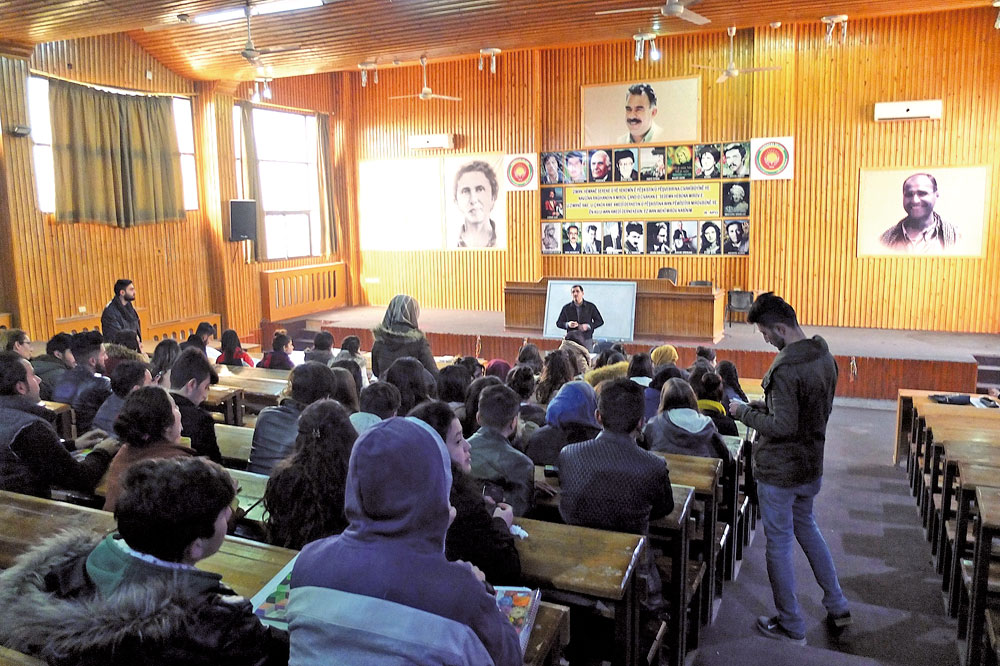"I, daughter of the diaspora, lived fighting myself in Germany."
- Samira Belyouaou (Heidelberg, Germany, 1994) is the daughter of the diaspora. Her parents, born in Rif (Morocco), her daughter Samira in Germany and four more children, had their mother tongue in the Amazon. In the course of the translation career, he works in a software company to manage the translations of his products in 80 languages. Garabide complied last autumn with the Adituak programme and told us about his first language. Currently, 3.6 million people speak in Morocco and Algeria – and in the diaspora it has to be said – and since 2011 it has an official status in both countries, although not regulated.

Little Samira Belyouaou lived in her mother's lap, in the house where they only talked about the Amazon. When she started school in 3 years, she realized it was different. In the small town of Neckarhausen, he was the only child with curly hair in the
clase.El fact that it is different causes, not infrequently, discrimination.
I was different, but I didn't receive contempt. I wanted to be more German than later, knowing that those around me didn't see me as a German. I was the “other”. In 2001, for example, when there was an attack on the Twin Towers (New York, USA). Even if I was a boy! I already felt different and wanted to be as German as the others. It's curious, because when we were going to the Rif in summer and hugged us with open arms, I felt it was different from them. Ha ha ha! So these are the cases of identity. The disorder was complete.
When did you break this notion of identity?
In college, when I started making my thesis. I started researching the loans that came from Spanish to the language of the Rif. But for that he had to do a lot of research, for example, on what the tarification and the Amazon in the lands of the Rif [tarifite is a variant of the Rif and the Amazon covers a wider territory]. Until then, I have to say, I lived as a party: the German part of my interior despised the other, the Amazon. I talked easily about charging, but before I spoke in my language, I preferred to speak better in Arabic or French. Of course, I spoke German, straight and right, like the natives, and all of them were more prestigious than my tarifite.
And, therefore, when did you change your conviction of the rate?
When I was researching that more hidden side of me -- I mean the culture of the Rif -- I started to value it, though I didn't forget that I was born and raised in Germany. In Heidelberg, or in the Neckarhausen, I thought of German. In the summers of the rif, in the language Tariit. “This is me, simply, I don’t have to define myself. I am like that and that!” I said that I had received no reproach, that my colleagues accepted me simply, but sometimes I thought they did not understand me. It is very interesting, because in my situation there were some Kurds, or the children of people migrated from another country to Germany. And we did, we understood, we understood and we shared that divided life. Today I am not alone, but at that Neckarhaus, a Turkish and I were “strangers” to the school.
He's been in college, he's a translator of profession. How have you come to make the Garabideko Adituak program?
I've made a great trip before I come. With this thesis, the journey began. As I researched it, I found it terrible what I discovered. What I thought then, I'm going to say crudely. “There is no need to revive anything. If you delete the language variable from the equation, enough headaches!” I, the daughter of the diaspora, lived in Germany fighting against myself, but, on the other hand, I wanted to go to the Rif, talk to the administration and pricing was of no use. “I will learn Arabic. It is enough to fight against myself!” I think that was the case.
But you say that you changed the idea that you were conducting the research.
The more he read, the more he distinguished himself: in our language there were also poets, science, treasures. "Wow! That is, what wealth!” And I started to tell things about social media. And soon we formed a network, we were Amazi-people, some crabs, others from southern Morocco ... We were all born or raised in Germany, we were living in the same situation. And from what I realized, people were interested in language, and in other times, as I believed, corrupt belief!, that in our language there were no books, no culture, no letters... They were wrong with my opinion. They didn't know what I came to know. No information!It
refers to the information you obtained through a university research.
Yes. In addition, I understood other languages, Spanish, French, English... I also knew how to write about them. The thing is, we created a network to talk about tariffs. Once the network is completed, we form a partnership to have a certain structure. At that time, a colleague informed me of Garabide’s training course. All you needed was to know a little Spanish and have the desire to revitalize languages. "That's interesting! I thought. And I came. Ha ha ha!
Tell us, please, what this network is about to talk about tariffs.
We don't have a fixed place to meet, we talk mostly through the network. When we go to work, we get together at each other's house or a coffee shop. At first, our meetings were completely informal, I would say we played, we talked about Amazons, we laughed ... Some of us do nothing but understand. Others speak elegantly. We had a great feeling of solidarity. We started making games, but soon we started talking about this and that; social issues, if you want to: “Doe has not received house pricing, because at one point they prevented the transmission of the language in their village, for these and other reasons.” Or, for example, what another said. “I want to talk about rates at home. I started talking and the family laughs at me, laughs at me! And I've stopped talking about fees." It's a
common fact in all languages. What is more, in the case of minority languages.
We, for example, began to ask those who were psychologists among us about the situation of those who were ashamed to speak in our language. I remember talking online about this issue, and it involved about 50 people. Some were connected from Frankfurt, others from Dusseldorf or Cologne, or from Berlin... They were very interested! Next, we started organizing days, events in person, since until then we have worked online.
What language intentions do you have when you return to your country?
There is a pact between Germany and Morocco whereby children of families migrated to Germany have the right to be schooled in their own language as well. In other words, teaching is taught in German, but it offers courses in Arabic, Kurdish or Spanish. It is in our hands to go to the Moroccan Consulate in Frankfurt and ask for a Moroccan professor. Of course, without further ado, the Consulate will not send us any teachers who teach the Amazon, but will teach Arabic. I would like to go to this consulate and make the request of a teacher from the Rif to teach in our mother tongue, to teach me the fee at school.
Is it viable?
I don't know! It is now more of a dream than a feasible reality. But who knows! We would have the right, but we cannot know. For example, last year we met with a professor from Amazigera in the Tarifa (Cádiz, Andalusia), who told us about the situation he lived in Frankfurt in the 1990s. He said that he had made an Amazon course proposal within the local community, but surprisingly – astonishingly – the Amazon people of the diaspora refused that course. Things then.
Do you think today is something different?
I guess so. I think the situation today is different, people have a greater linguistic awareness, and if they don't have a lot of consciousness, they at least have a greater interest. Since then, 30 years later, I think we are at a better point, in the way we approach the project that has come out of here. I, for example, want to start alphabetizing speakers. Because of people's literacy, there will be more teachers than there will be later. Without the help of the Moroccan Government, there is no possibility of starting to walk along the way. And then we'll see.
What do you think of the situations of the other linguistic communities you have known during your stay at Garabide?On the one hand, I thought that – including Amazon speakers in
general, and charging speakers – we were in a very poor state. We should already have such and such tools. But I have come to Garabide and I have seen that there are people living in a dramatic situation, who are very few speakers, or, for example, who are working to strengthen family transmission, so that the chain is not broken. That made me reflect. “We will also work to ensure that our community does not reach this situation in a few years’ time.” On the other hand, I have seen that there are people who have worked a lot, either because they have worked on standardization, or because they are working hard and all at once, like you, in my opinion. After all, I have seen that there are as many realities as you like, that there are not entirely white or black situations, but that there is a chaos of colors.
Hizkuntza tipologiaz ez baina amazigerak eta kurduerak bizi duten prozesu simetrikoaz jardun du Karlos Zurutuza kazetariak: “Prozesu polit eta bitxi baten lekuko izan naiz. Egun batetik bestera, eta literala da hori, bi komunitateok euren hizkuntzei eusteko hartu duten... [+]












